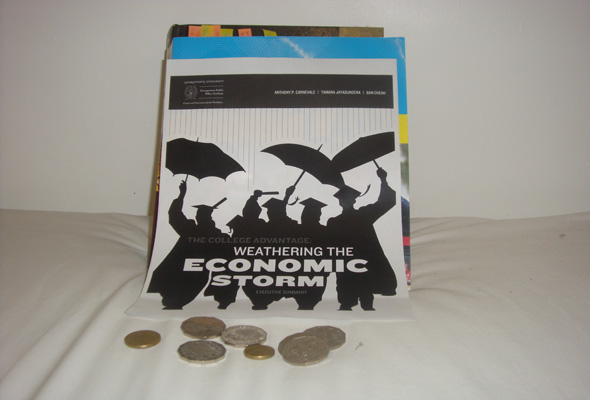
University graduates do better in recession
New research has revealed that the global recession had a far smaller impact on people with university degrees compared to those without.
New research has revealed that the global recession had a far smaller impact on people with university degrees compared to those without. Georgetown University has released a new report which looks at employment in the United States during the recession, showing that people with a degree actually gained jobs, while those without lost a significant number. The report can be viewed here
During the economic recessive period of 2007-2010, Americans with a bachelor’s degree or better gained 187, 000 jobs, while those with only a high-school diploma lost 5.6 million jobs. During the recessive recovery period, which started in 2010, those with degrees gained 2 million jobs, while those without lost 230, 000 jobs.
“It is a tough market for college graduates but far worse for those without a college education,” said Anthony P Carnevale, co-author of the report. “At a time when more and more people are debating the value of post-secondary education, this data shows your chances of being unemployed increase dramatically without a college degree.”
The recession recovery period also increased the divide between the less-educated and more-educated, with more than half the employment increases going to workers with a bachelors degree or better. Looking back over the past two decades in America, employment growth has been entirely through increases in the number of workers with tertiary education.
While the Georgetown university report focused on the American job market, it appears that the results ring true for most developed countries.
Professor Paul Frijters, from the University of Queensland’s school of Economics says that the results of the Georgetown report are due to the theory of skill biased technological change.
“In the last couple of decennia our economy has become more and more rewarding of cognitive skills and less and less of repetitive skills,” said Prof Frijters about this theory. “Anyone who is not educated to the hilt is replaced by a computer, and automated machine or a poor worker overseas.”
Prof Frijters also stressed that countries with knowledge-based economies, where there are a large number of people with higher education, will not always fare better in recession than countries with industry based economies.
“Poor countries that rely on manufacturing, like China and India, did great during the recession.”
Prof Frijters said the impact on certain industries can change depending on the country they are based in. “In Australia, yes, manufacturing is in decline and has been so for a long time. High-tech manufacturing though, such as in Germany or Silicon Valley is going gangbusters during this recession.”
Watch Anthony Carnevale discuss the findings in his report:
